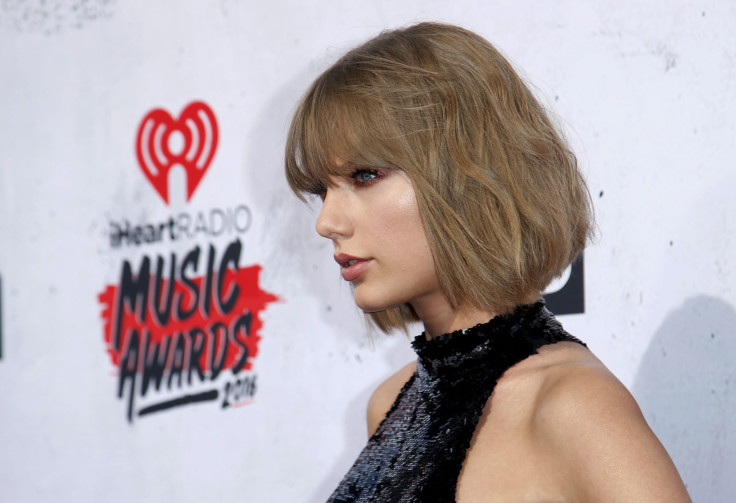The Taylor Swift Award: Why Are Young Pop Stars Getting Lifetime Achievement Awards?

And the winner of the Taylor Swift Award is —Taylor Swift! Who would have guessed?
The Broadcast Music Inc. Pop Awards announced Tuesday it will be giving Swift, the best-selling, Grammy-winning singer-songwriter, the Taylor Swift Award in May, recognizing her “incomparable creative and artistic talent.”
But why give a 26-year-old a lifetime achievement award? In short, ratings and publicity.
The BMI award is the latest in a trend of award shows using conveniently conceived honorary awards to create buzz-friendly moments.
“Awards are a way of filtering through the infinite stuff out there,” Robert Thompson, director of the Bleier Center for Television and Popular Culture at Syracuse University in New York, told International Business Times. “There are always going to be organizations that would like to filter that in their own best interests. ... There has never been a pure era in awards.”
There certainly does not appear to be much purity in the honorary awards bestowed by the American Music Awards. The Dick Clark-founded, public-voted awards show gave then-25-year-old Rihanna the Icon award in 2013. The AMA has yet to give out the Icon award again in two subsequent ceremonies, but the following year Swift received the again-newly created Dick Clark Award for Excellence. In 2015, the Dick Clark award was nowhere to be found.
Merit aside — Rihanna and Swift are both indisputably accomplished artists — the assignment and creation of these awards seems awfully arbitrary, but then again, the motives behind them are not artistic justice, but ratings. In 2013, the year the AMA crowned Rihanna an “Icon,” it scored its highest rating in four years with 12.9 million viewers, according to Nielsen.
The Rihanna award is not the sole reason for that viewership jump. The ceremony also featured a lineup of performances from A-list pop stars, such as Katy Perry and One Direction. But it was the pseudo-centerpiece in a strategy to boost ratings. In 2012, the American Music Awards had seen a significant dip in viewership in competition from “Sunday Night Football.”
BMI says Swift is receiving her eponymous award for having “transformed pop culture through her songs, artistry and indomitable spirit.” However, the organization is also eyeing publicity. The BMI awards are doled out in a private ceremony, so ratings are not in play. However, the music publisher, which by definition has profited from Swift’s popularity and massive album sales, profits further by promoting its name alongside hers. Dozens of media outlets covered the announcement of the award.
“Who would be talking about the BMI awards otherwise?” Thompson asked. “If you went outside and asked 100 people who won last year’s BMI awards, it would be hard to find someone who could answer that.”
Artists are not oblivious to what's happening. At the 2015 MTV Video Music Awards, Kanye West received the Video Vanguard award, the ceremony’s equivalent of a lifetime achievement award. Presenting the award was Taylor Swift. In the lead-up to the show, MTV made no secret of promoting the fact that West had infamously interrupted Swift’s acceptance of an award on that same stage in 2009 — famously stealing the microphone and telling her he would “let her finish” — eager to hype the stars’ reunion. In his 2015 acceptance speech, West called out MTV for the shameless ploy.
“You know how many times MTV ran that footage again? Because it got them more ratings,” the controversial rapper asked. “You know how many times they announced Taylor was going to give me the award because it got them more ratings? ... I still don’t understand award shows.”
This doesn't mean these various honorary awards are meaningless. They are still given out by prestigious, industry organizations to deserving recipients. Even the young age of some of the honorees, obviously chosen to appeal to a young audience, does not negate the recipients’ accomplishments. There have been very young Pulitzer Prize-winning journalists — a 24-year-old Sara Ganim won in 2012 for her coverage of the Penn State sex abuse scandal — and child actor Oscar winners — an 11-year-old Anna Paquin won Best Supporting Actress in 2001 for “The Piano.”
“How old was Orson Welles when he did ‘Citizen Kane’?” Thompson asked. “How old was Mozart?”
© Copyright IBTimes 2024. All rights reserved.












